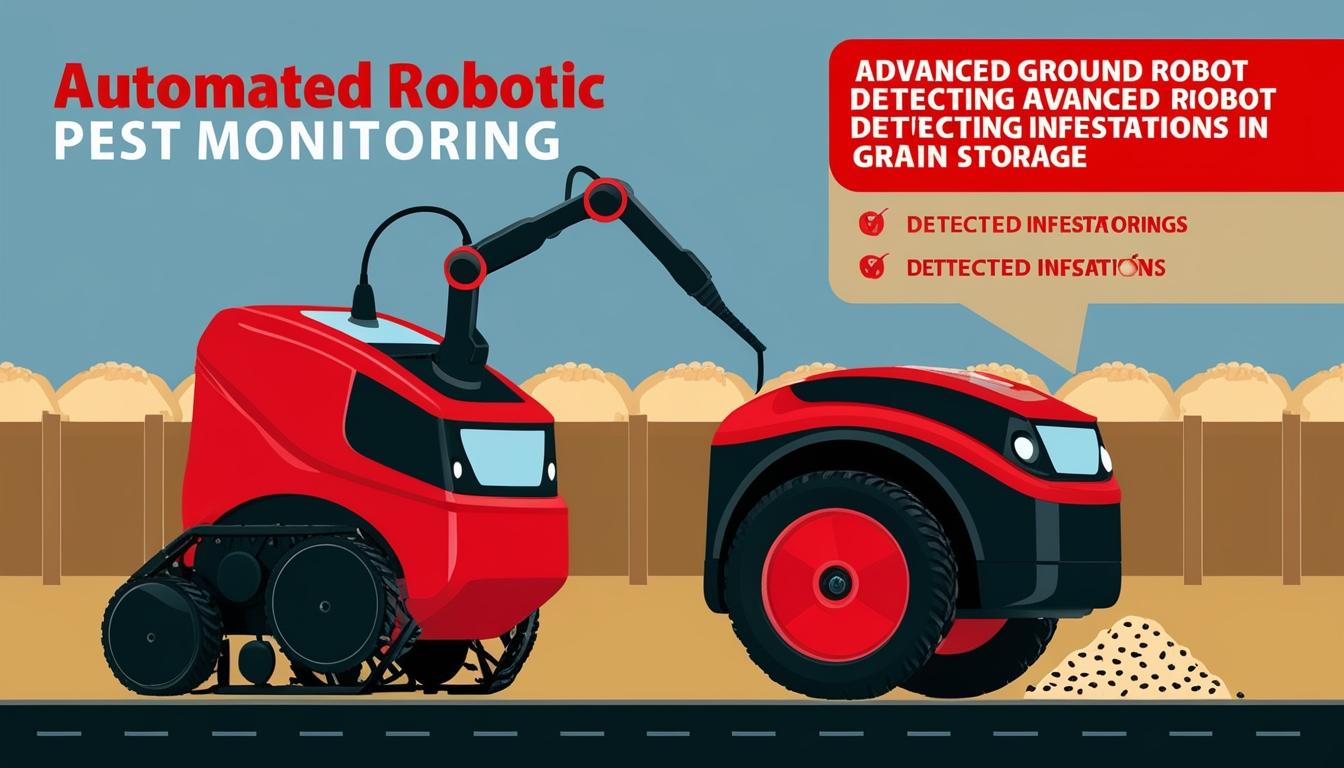Researchers at the University of Tennessee Institute of Agriculture (UTIA) have secured a significant financial boost to develop advanced monitoring systems aimed at tackling pest infestations in food production. The $324,000 grant, awarded by the USDA National Institute of Food and Agriculture (NIFA), will facilitate a three-year initiative in collaboration with the USDA Agricultural Research Service (ARS).
The focus of the research is to create automated solutions for detecting insect infestations in grain storage facilities and large-scale food processing units. This includes the deployment of innovative automated sensors, insect traps, and robotic technologies which will serve to accurately identify pest species, pinpoint contaminated areas, and estimate pest population sizes in stored commodities such as corn, wheat, tobacco, and hops. The project will feature the development of an autonomous ground robot designed to gather data and generate reliable two-dimensional maps of infestations, which will assist in implementing effective pest control measures. Chetan Badgujar, an agricultural engineer and project lead at UT’s Department of Biosystems Engineering and Soil Science, emphasized the potential for these systems to reduce post-harvest losses and contamination risks within the global food supply chain. He stated, “Current detection methods are often inaccurate, time-consuming and labor-intensive. Our new devices will provide automated reports of infestations thanks to an advanced robotic-based recognition system that is functional anywhere and with any local insect populations.”
To ensure these technologies meet the needs of the industry, the research team will actively engage stakeholders, including farm supply stores and grain mills, to conduct beta testing and annual cost-benefit analyses. The initiative is part of NIFA’s Crop Protection and Pest Management (CPPM) programme, which is aimed at addressing critical pest management issues across various agricultural sectors.
In addition to the primary grant, Badgujar and UTIA researcher Hao Gan have also been awarded over $50,000 by the Center for Produce Safety. This separate project focuses on developing automated deterrence systems aimed at mitigating the impact of pest birds on produce fields. By employing digital sound surveillance technologies, the project seeks to identify specific bird species and trigger automatic visual and auditory deterrents to help reduce the transmission of avian foodborne pathogens.
The University of Tennessee Institute of Agriculture encompasses several components, including the Herbert College of Agriculture, UT College of Veterinary Medicine, UT AgResearch, and UT Extension. The Institute pursues its mission of teaching, research, and outreach, providing practical solutions to agricultural challenges faced by the community in Tennessee and beyond.
Source: Noah Wire Services
